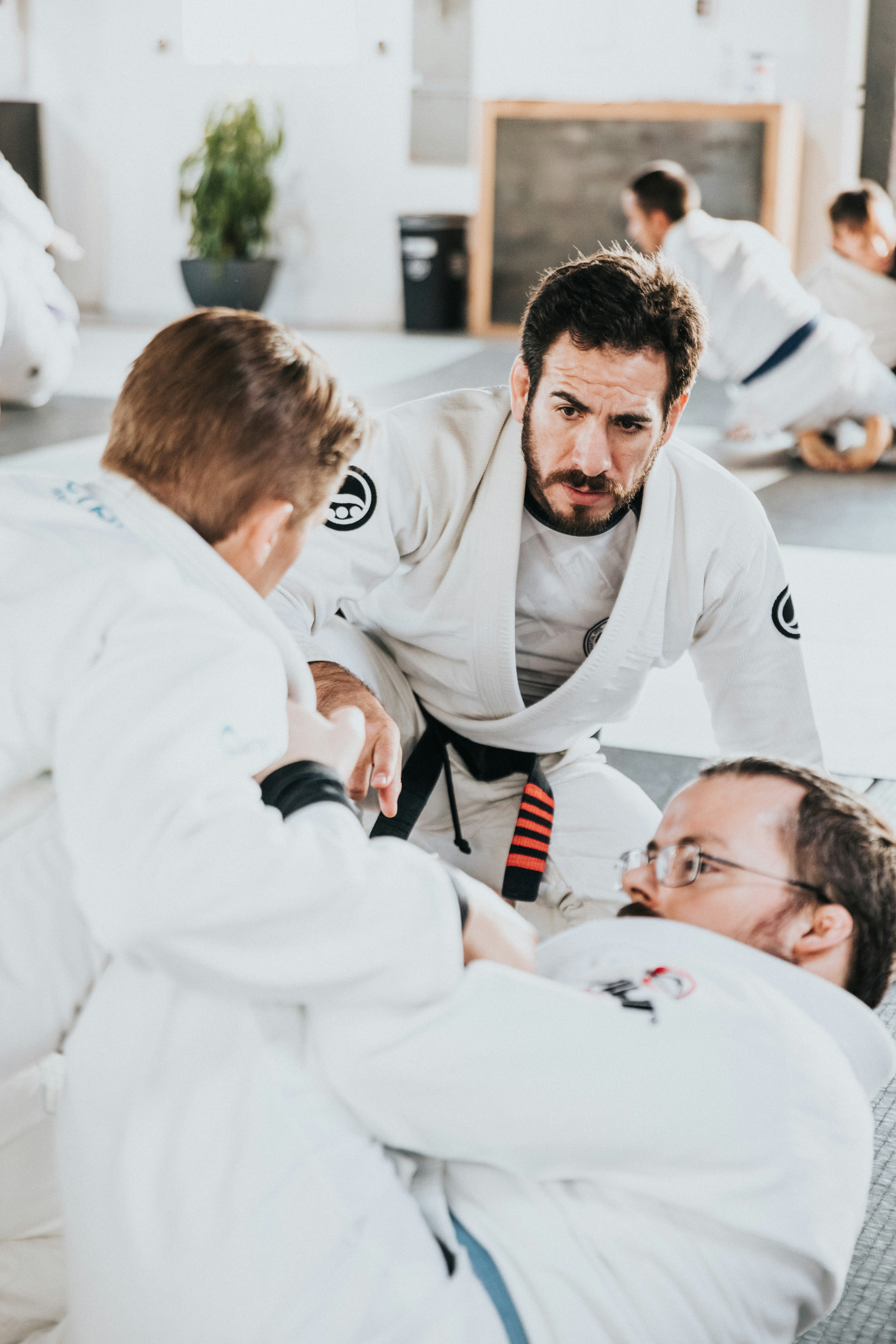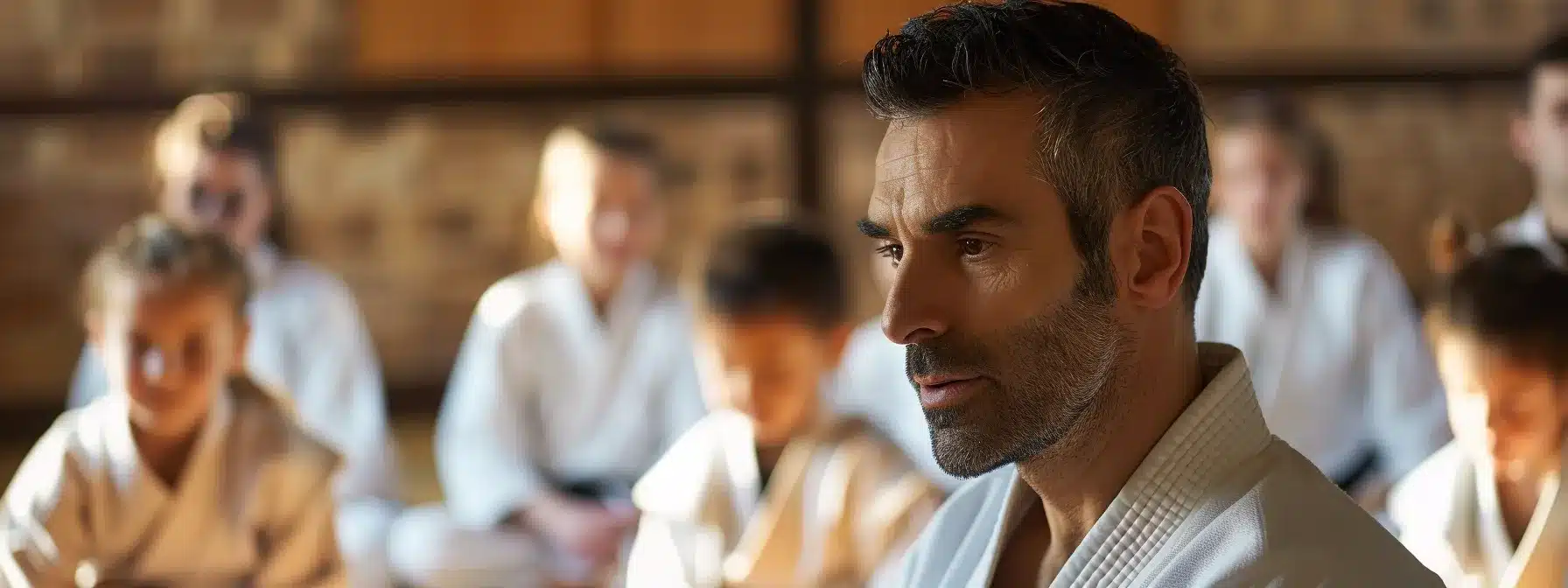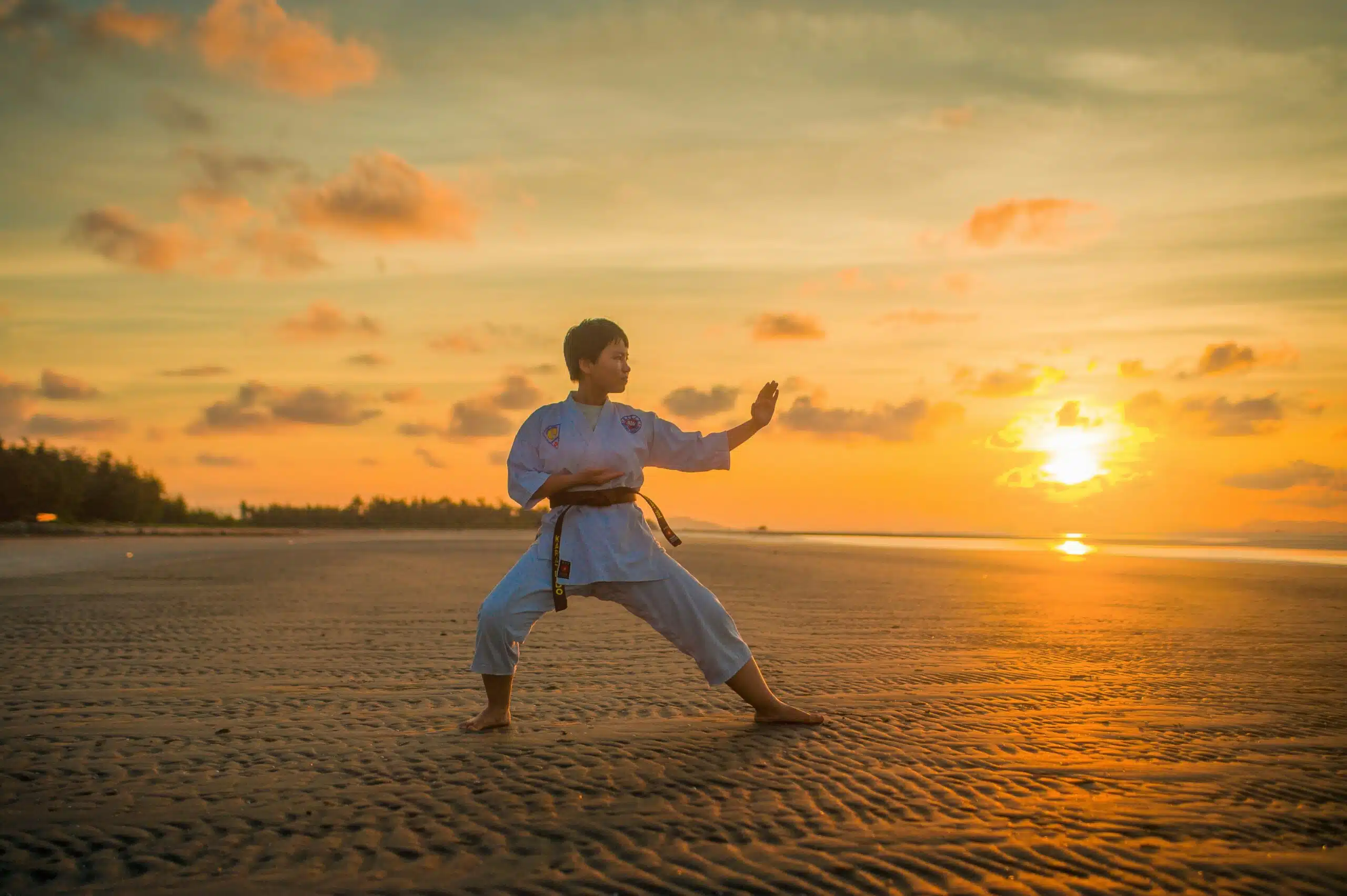Are you having trouble keeping your martial arts business ahead of the competition? This article focuses on the important role of customer service in martial arts schools and offers specific ways to improve staff training, enhance communication through technology, and implement feedback systems for continual improvement.
You’ll discover the best practices to keep students engaged, whether they’re gripping a bokken, perfecting their judo throws, or lacing up their boxing gloves.
By emphasizing customer satisfaction, an often-overlooked element, you can sidestep the risk of losing clients to rivals. Dive into this guide to transform the service you deliver and watch your business thrive.
Key Takeaways
- Personalized service in martial arts schools boosts student retention and satisfaction
- Effective communication tailored to different age groups builds a strong community in the dojo
- Incorporating customer feedback leads to improvements that enhance student experience and business growth
- Technology enhances customer service by offering flexible training options and streamlining operations
- Regular evaluation of service quality through KPIs informs ongoing improvements in martial arts businesses
Understanding the Importance of Customer Service in Martial Arts Businesses

Customer service shines as a pivotal element in martial arts schools, impacting arnis, kendo, and grappling academies alike. This key driver not only boosts student retention but also distinguishes a school in a bustling market. Owners who grasp and apply this information often see their businesses thrive.
Overcoming service challenges and leaving a stellar first impression are essential growth strategies. The following sections delve into these topics, offering valuable insights for martial arts business owners.
Impact of Customer Service on Student Retention
When a martial arts business excels in customer service, the benefits are crystal clear in terms of student retention. Imagine walking into a dojo where the welcome is warm, staff remember your name, and the process to log in and access your account is a breeze. It’s these small touches, including how quickly and effectively issues are resolved—whether it’s a question about the law or finding the right MMA gloves—that make students feel valued and more likely to stay.
Artful customer service extends beyond making contact; it involves creating a supportive community that students will want to stay in.
- Personalized attention retains students: Knowing names and preferences creates a sense of belonging.
- Efficient processes: A smooth login experience and easy access to information keep students satisfied.
- Responsive solutions: Quick and competent resolution to inquiries about equipment or legal aspects shows care and professionalism.
Standing Out in a Competitive Market
In the competitive martial arts landscape, exceptional customer service can set a business apart. When students feel like more than just a fee or a purchase, they engage deeper with the sport. One way martial arts schools stand out is by offering personalized services, like helping student remember their password or choosing the perfect hoodie after training.
These gestures show that the business values its customers on an individual level, turning casual participants into loyal members of the school’s martial arts family.
Linking Customer Satisfaction to Business Growth
Satisfactory customer service in martial arts schools fundamentally nurtures business growth. When students experience superior service, from understanding the assumption of risk to navigating a web browser for class schedules, they are more likely to commend the business to others. Highly regarded schools across the United States witness a surge in enrollments, partly because contented students often spread the word and encourage friends to join.
Moreover, when a martial arts business builds an inclusive environment where service is a priority, it may see a remarkable increase in its mailing list, indicating a growing interest from the community. This interest often converts into a sustainable increase in student numbers and, subsequently, business growth.
Overcoming Common Service Challenges
Martial arts businesses often face hurdles in delivering consistent, top-quality customer service. One common issue arises when students experience technical difficulties, such as a credit card payment error during enrollment or forgetting the password for an online jujutsu class. Staff must show skill not just in martial arts but also in swiftly resolving such problems to prevent frustration.
When an employee replaces a defective glove without delay or assists with a smooth kick technique demonstration, it instills confidence in both the service and the school.
- Speedy resolution of payment issues ensures uninterrupted access to classes.
- Helping with account recovery or tech support fosters reliance on the business for more than just training.
- Offering immediate solutions, like on-the-spot gear replacement, demonstrates a commitment to quality experience.
Making a Positive First Impression on New Students
For new students stepping into a martial arts environment for the first time, the initial interaction sets the stage for their entire ninja journey. A smooth, welcoming experience can foster immediate confidence, whether they’re aspiring taekwondo champions or seeking personal development.
Martial arts schools that showcase patience, attentiveness, and a genuine interest in each individual’s goals not only put students at ease but spark enthusiasm to dive deeper into the art, laying the foundation for a lasting relationship.
Building Strong Relationships With Students and Parents

In the realm of martial arts, from karate to Chinese martial arts, building strong relationships with students and parents is just as critical as perfecting a kick or a block. Mastering the art of communication, especially when addressing various age groups through text messaging or face-to-face, lays the groundwork for a dojo that welcomes everyone.
By tailoring the curriculum and training experience, martial arts businesses can create a setting where everyone feels included and valued. Such businesses truly excel in handling feedback professionally and nurturing a community spirit, elevating the mixed martial arts experience for all involved.
Communicating Effectively With Different Age Groups
Communicating effectively with different age groups requires a martial arts business to adapt its message to suit the audience. For younger ninjutsu enthusiasts, demonstrating a weapon’s history might be paired with visuals, using their email addresses to share additional resources.
For adults, an in-depth class on the practical application of nunchaku may be better received through detailed email explanations. This tailored communication not only enhances understanding but also fosters a sense of respect toward the various learning styles within the dojo community.
Creating a Welcoming and Inclusive Environment
Creating an environment that is both welcoming and inclusive often starts with the first phone call a student or parent makes to inquire about classes. By ensuring that every interaction, whether via telephone number or at the front desk, demonstrates attentiveness and warmth, martial arts businesses can set a tone of community from the outset.
This approach extends to the dojo floor, where instructors handle gear with care to prevent negligence, monitor sparring sessions closely to protect every foot and fist involved, and encourage all students to support one another.
It’s this collective effort that fosters a sense of belonging for students and parents, a key factor in both satisfaction and long-term commitment to the martial arts journey.
Personalizing the Training Experience
Personalization in the martial arts training journey, particularly within disciplines like aikido, kickboxing, or century martial arts with their unique sword techniques, is essential in promoting engagement and satisfaction.
For instance, a kickboxing instructor who tailors the intensity and focus of workouts to each student’s fitness level or integrates feedback from an aikido practitioner into their sword handling drills, demonstrates dedication to individual progress.
This customized approach not only caters to students’ specific goals and abilities but also fosters a nurturing environment where every participant feels acknowledged and valued.
Addressing Feedback and Concerns Professionally
In the world of martial arts businesses, dealing with feedback and concerns professionally is vital for fostering trust and building strong relationships with students and parents. Whether a student is voicing concerns about personal injury during training, the ease of using technology in the dojo, or simply inquiring about the balance of a gift card, swift and thoughtful responses are key.
By actively listening and addressing feedback, martial arts schools demonstrate a commitment to excellence and personalize the exercise experience, reassuring students and parents alike.
This attentiveness strengthens the community bond, leading to greater student satisfaction and retention:
- Immediate response to injury concerns with proper first aid and support reassures students of their safety.
- Providing clear instructions and assistance with dojo technology ensures smooth access to training resources.
- Managing gift card inquiries with efficiency shows respect for students’ time and investment in their martial arts journey.
Cultivating a Sense of Community in Your Dojo
Creating a sense of community within a dojo goes a long way in reinforcing discipline and fostering loyalty. When students don a matching shirt, stand in line to earn their next black belt, or help one another protect against a groin strike, they become part of something larger than themselves.
A martial arts business that encourages these bonds, often beginning with a simple welcome phone call to a new member, sets the stage for a supportive network that thrives both on and off the mats.
Conclusion
Excellent customer service is central to the success of martial arts businesses, as it significantly boosts student retention and sets a school apart in a competitive industry. By addressing individual needs, resolving issues promptly, and nurturing a sense of community, businesses can enhance student satisfaction and encourage growth through referrals and sustained enrollments.
Technology plays a key role in improving interaction and streamlining processes, ensuring a seamless and secure customer experience.
Ultimately, martial arts schools that prioritize and continuously improve their customer service are more likely to flourish, fostering a loyal student base and a reputable brand in the martial arts community.


